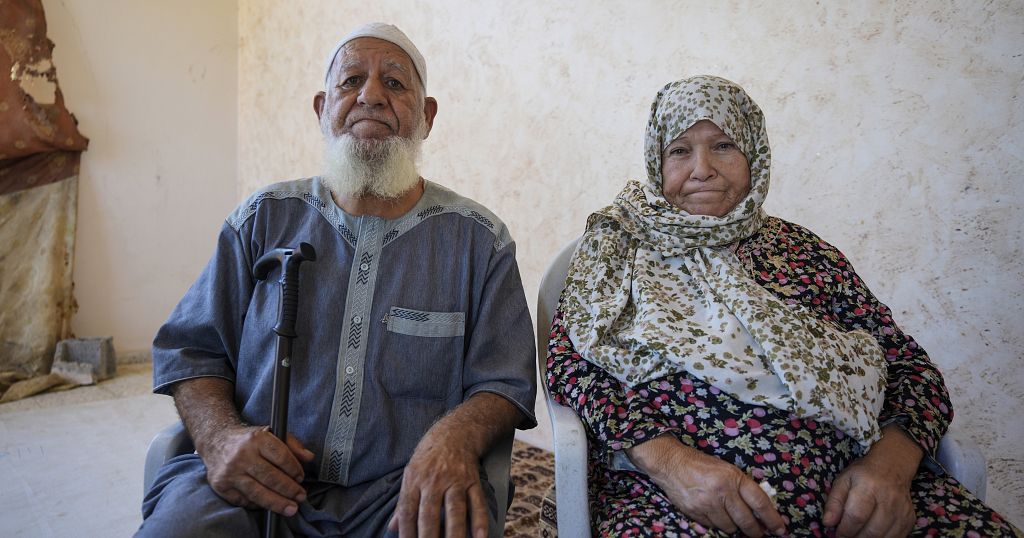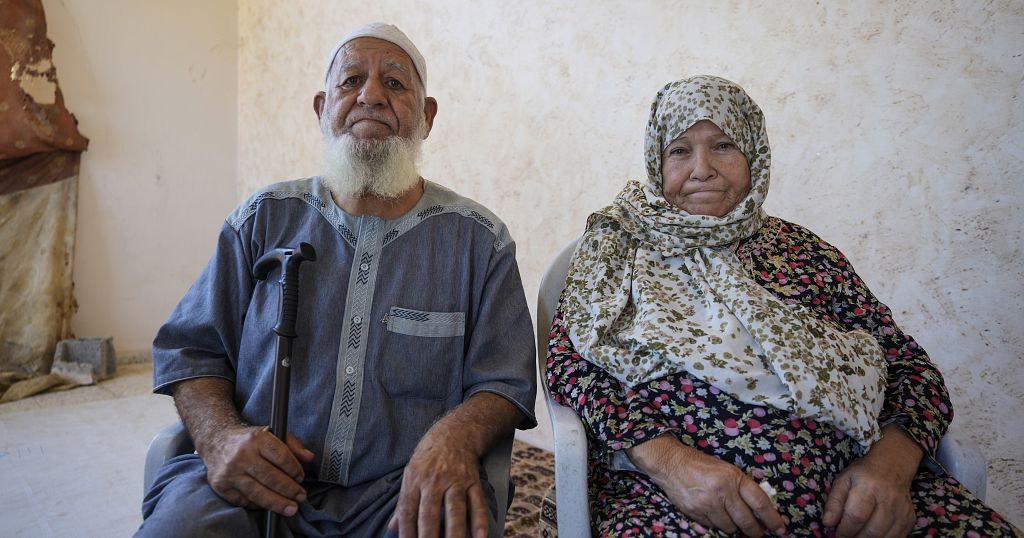
This year’s Hajj pilgrimage came against the backdrop of the raging war in the Gaza Strip between Israel and Palestinian militants.
The war has pushed the entire Middle East to the brink of a regional war between Israel and its allies on one side and Iran-backed militant groups on the other.
Palestinians in the coastal enclave of Gaza were not able to travel to Mecca for Hajj this year because of the closure of the Rafah crossing in May when Israel extended its ground offensive to the strip’s southern city on the border with Egypt.
“We are deprived of (performing) Hajj because the crossing is closed, and because of the raging wars and destruction,” said Amna Abu Mutlaq, a 75-year-old Palestinian woman from Gaza’s southern city of Khan Younis who had planned to perform Hajj this year. “They (Israel) deprived us from everything.”
Palestinian authorities said 4,200 pilgrims from the occupied West Bank arrived in Mecca for Hajj.
Saudi authorities said 1,000 more from the families of Palestinians killed or wounded in the war in Gaza also arrived to perform Hajj at the invitation of King Salman of Saudi Arabia.
The 1,000 invitees were already outside Gaza – mostly in Egypt – before the closure of the Rafah crossing.
More than 1.5 million pilgrims from around the world have already amassed in and around Mecca for Hajj, and the number was still growing as more pilgrims from inside Saudi Arabia joined.
Saudi authorities expected the number of pilgrims to exceed two million this year.
The pilgrimage is one of the Five Pillars of Islam, and all Muslims are required to make the five-day Hajj at least once in their lives if they are physically and financially able to do it.
It is a moving spiritual experience for pilgrims, who believe it absolves sins and brings them closer to God, while uniting the world’s more than two billion Muslims.
It’s also a chance to pray for peace in many conflict-stricken Arab and Muslim countries, including Yemen and Sudan, where more than a year of war between rival generals created the world’s largest displacement crisis.
For many Muslims, the Hajj is the only major journey they make in their lifetime. Some spend years saving up money and waiting for a permit to embark on the journey in their 50s and 60s after they have raised their children.
The rituals during the Hajj largely commemorate the Quran’s accounts of Prophet Ibrahim, his son Prophet Ismail and Ismail’s mother Hajar – or Abraham and Ismael as they are named in the Bible.
Male pilgrims wear an ihram, two unstitched sheets of white cloth that resemble a shroud, while women dress conservative, loose-fitting clothing with headscarves, and forgo makeup and perfume.
They have been doing the ritual circuit around the cube-shaped Kaaba, counter-clockwise in the seven-minaret Grand Mosque since arriving in Mecca over recent days.
Saudi authorities have adopted security restrictions in and around Mecca, with checkpoints set up on roads leading to the city to prevent those who don’t have Hajj permits from reaching the holy sites.
Read More: World News | Entertainment News | Celeb News
African News





